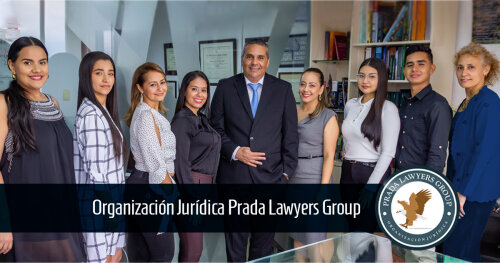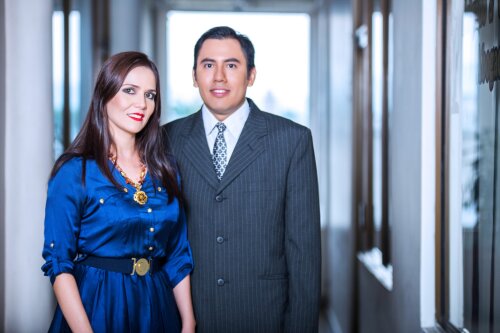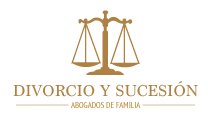Best Family Lawyers in Bucaramanga
Share your needs with us, get contacted by law firms.
Free. Takes 2 min.
Free Guide to Hiring a Family Lawyer
List of the best lawyers in Bucaramanga, Colombia
About Family Law in Bucaramanga, Colombia
Family law in Bucaramanga, Colombia covers legal issues related to domestic relations and familial matters, including marriage, divorce, child custody, adoption, alimony, and inheritance. This area of law is regulated both by Colombia’s national Código Civil (Civil Code) and specific Colombian statutes such as the Código de Infancia y Adolescencia (Children and Adolescents Code). Family courts in Bucaramanga handle disputes and legal procedures regarding these issues, working to protect the rights and welfare of individuals, especially children and vulnerable family members.
Why You May Need a Lawyer
There are several situations where seeking the assistance of a family lawyer in Bucaramanga is essential:
- Filing for divorce or legal separation
- Resolving child custody, visitation, or child support disputes
- Seeking or changing alimony or maintenance payments
- Adopting a child, whether national or international
- Handling cases of domestic violence, including protective orders
- Settling disputes over inheritance or succession
- Negotiating prenuptial or postnuptial agreements
- Assisting with guardianship or emancipation matters
- Defending or asserting parental rights
- Dealing with international family law issues, such as relocation or child abduction
Family law is a sensitive field where emotions often run high, and the outcomes can greatly impact family members’ lives, especially children. Legal advice ensures you understand your rights and responsibilities and can make informed decisions.
Local Laws Overview
Family matters in Bucaramanga are governed by Colombia’s national legal framework, supplemented by local judicial practices in Santander Department. Key aspects include:
- The Colombian Civil Code - regulates marriage, divorce, parental authority, and property regimes.
- The Children and Adolescents Code - protects the rights and welfare of minors, particularly in custody and adoption cases.
- Family judges (jueces de familia) - have exclusive jurisdiction over most family law disputes and are responsible for issuing binding judgments.
- The Defensoría de Familia - a public office that protects children’s interests and intervenes in cases involving minors.
- Mediation and conciliation - encouraged as first steps before litigation, especially in custody and support issues.
- Special procedures - exist for protection against domestic violence, including rapid legal protection (medidas de protección).
If disputes cannot be settled amicably, formal court proceedings will follow, and legal representation is highly recommended to navigate the procedural requirements and obtain favorable outcomes.
Frequently Asked Questions
What are the legal grounds for divorce in Bucaramanga?
Divorce in Colombia can be granted on several grounds, including mutual consent, irreconcilable differences, infidelity, abandonment, or abuse. Unilateral divorce can be pursued when one spouse meets the legal requirements, with or without the other’s approval.
How is child custody determined?
Child custody decisions are based on the best interests of the child. Courts consider both parents’ ability to provide emotional, educational, and financial support. Shared custody is common, but the presiding judge may grant exclusive custody if warranted.
What rights and obligations do parents have regarding child support?
Both parents are legally obligated to support their children financially. Child support amounts depend on each parent’s income and the child’s needs. The courts enforce these obligations and can impose sanctions for non-compliance.
Can I adopt a child in Bucaramanga?
Yes, Colombian law permits adoption by individuals and couples, both nationals and foreigners. The process is thorough and includes social and psychological studies, as well as court approvals to ensure the child’s wellbeing.
How are spouses’ assets divided during a divorce?
Colombia uses a community property regime (“sociedad conyugal”) by default, where assets and debts acquired during the marriage are divided equally unless a different arrangement was formally agreed upon (such as separate property).
What should I do if I experience domestic violence?
Victims of domestic violence should seek immediate help from the authorities, the police, or the Defensoría de Familia. Protective orders and emergency judicial measures can be issued quickly to safeguard victims and children.
Is mediation required in family law disputes?
While not mandatory in all cases, mediation and conciliation are encouraged and, in many instances, required before a case can proceed to court, especially in custody and support matters.
Can grandparents seek visitation rights?
Yes, Colombian law recognizes the importance of extended family relationships. Grandparents may petition the court for visitation if this benefits the child, particularly when one or both parents are not available or able to care for the child.
Do same-sex couples have the same family law rights?
Since 2016, same-sex marriages and unions have been legal in Colombia. Same-sex couples have equal rights regarding marriage, adoption, property, and other family law matters.
How long does a typical divorce or custody process take?
Uncontested divorces or custody arrangements resolved by mutual consent can be finalized within a few months. Disputed cases or those involving complex assets or disagreements about children may take longer, sometimes over a year.
Additional Resources
Several organizations, offices, and resources can assist individuals needing family law advice in Bucaramanga:
- Defensoría de Familia - part of the Instituto Colombiano de Bienestar Familiar (ICBF), offering legal guidance and protection for minors
- Instituto Colombiano de Bienestar Familiar (ICBF) - handles child welfare, adoption, and family protection matters
- Family Commissariats (Comisarías de Familia) - provide immediate help in domestic violence, family protection, and conciliation services
- Legal Aid Offices (Consultorios Jurídicos) - local universities often provide free or low-cost legal advice to those in need
- Colombian Judicial Branch (Rama Judicial) - for information about local courts and filing processes
These resources offer support for both legal procedures and protection, especially for vulnerable populations such as children and victims of violence.
Next Steps
If you need legal assistance with a family law issue in Bucaramanga, begin by collecting all relevant documents such as marriage certificates, birth certificates, financial statements, and any evidence related to your case. Consider reaching out to a qualified family law attorney to ensure your rights are protected and your case is handled effectively.
You may also visit your local Defensoría de Familia or Comisaría de Familia for urgent needs, especially in cases involving children or domestic violence. For ongoing legal representation or advice, look for a lawyer who specializes in Colombian family law and is familiar with the local courts of Bucaramanga.
Remember, early legal advice can prevent larger conflicts and help you navigate complex procedures with greater confidence. Do not hesitate to seek professional assistance to safeguard your family’s best interests.
Lawzana helps you find the best lawyers and law firms in Bucaramanga through a curated and pre-screened list of qualified legal professionals. Our platform offers rankings and detailed profiles of attorneys and law firms, allowing you to compare based on practice areas, including Family, experience, and client feedback.
Each profile includes a description of the firm's areas of practice, client reviews, team members and partners, year of establishment, spoken languages, office locations, contact information, social media presence, and any published articles or resources. Most firms on our platform speak English and are experienced in both local and international legal matters.
Get a quote from top-rated law firms in Bucaramanga, Colombia — quickly, securely, and without unnecessary hassle.
Disclaimer:
The information provided on this page is for general informational purposes only and does not constitute legal advice. While we strive to ensure the accuracy and relevance of the content, legal information may change over time, and interpretations of the law can vary. You should always consult with a qualified legal professional for advice specific to your situation.
We disclaim all liability for actions taken or not taken based on the content of this page. If you believe any information is incorrect or outdated, please contact us, and we will review and update it where appropriate.
Browse family law firms by service in Bucaramanga, Colombia
Bucaramanga, Colombia Attorneys in related practice areas.















